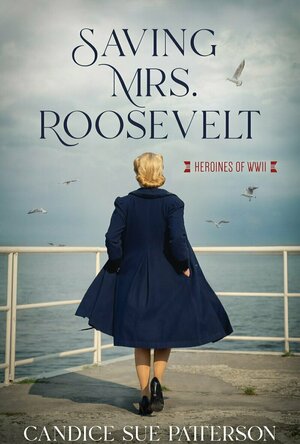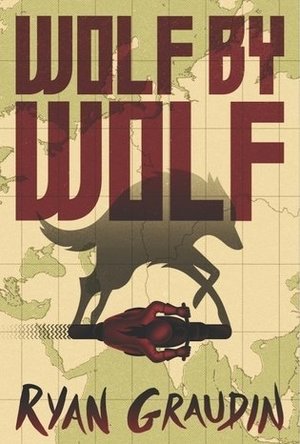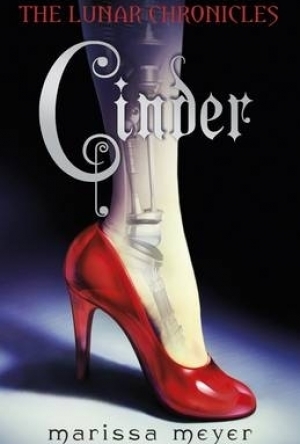Lindsay (1793 KP) rated Saving Mrs. Roosevelt in Books
Sep 10, 2022
The author does a beautiful job of telling the story and adventures that Shirley Davenport goes through. She goes through some training and trials as she is on a mission but can not tell her family. The way she comes home and has to deal with losing her brother on the same day she comes home from training.
You will be surprised as to who it is in the end. Shirley and her friend Joan sign up to be SPARS. Will Joan be loyal to her country, or will she not be? Things do not all seem as they are when Shirley gets home. She must lie to protect herself and her family. Will she be found out?
She seems to be charming a young man who is a Captain. Will the Captain fall for Miss Davenport, or will he wall in his grief for his two young brothers? They have stood paired up to capture the person trying to kill the Roosevelts. Will Shirley be successful in finding out about the conspiracy against the first lady?
Suppose you are looking for an excellent book to read about history and the woman that help during world war two on the homefront. This book does tell a story about a few heroes of ww2. With a little bit of romance as well.
Hazel (1853 KP) rated Wolf by Wolf (Wolf by Wolf, #1) in Books
Dec 17, 2018
What if the Nazis won the war? That is the setting for this captivating alternative historical novel by Ryan Graudin. In the newly named land of Germania it is 1956, more than a decade has passed since the Nazis won. The world is still not safe, especially for those who do not fit the Aryan race description. Seventeen-year-old Yael is about to set out on her first ever mission on behalf of the secret resistance group, but it will not be easy to fulfill her duty: to kill Hitler.
Yael was a Jewish prisoner in the death camps during the war. To most Nazi officials she was known as Experiment 85, and was undergoing melanin manipulation. What the doctors did not bargain on was that these experimentations would result in the ability to change physical appearance at will. Yael discovered she could change her skin tone, facial features, hair colour, height or even impersonate someone else, purely by concentrating really hard. It is this strange power that is going to help Yael on her quest to defeat Hitler.
In order to succeed, Yael needs to get as close as possible to the Fuhrer and the only way the resistance believe she will be able to do this is be impersonating Adele Wolfe, a motorbike racer, in the Axis tour: an epic long race from Berlin to Tokyo. However it is not as simple as changing skins and winning the race. Yael needs to convince the contestants that she is Adele and avoid all the dangerous tactics of the other racers so that she can get to the finish line.
<i>Wolf by Wolf</i> is an action-packed, exciting novel aimed at young adult readers interested in history and science fiction. Since it is taught in schools, most people are aware of the Holocaust and have an idea of the horrors Jews faced. But what if that did not stop at the end of the war? This is the idea explored within this novel amongst the exhilaration of the motorcycle race. No one would be completely happy under Hitler’s rule, and we can be thankful that this is only a ‘what if?’ scenario rather than our reality.
The science-fiction element was an interesting twist to the storyline. It does, however, detract from the seriousness of the Nazi rule. Without reminders of the time period, it could almost be a dystopian novel set in the future where a tyrant controls the world.
What I personally liked about <i>Wolf by Wolf</i> is that whilst the main storyline is playing out, we learn more about Yael’s life. She may have lost her true identity but there are several people who have impacted on who Yael is inside. These people are represent by five wolves tattooed onto her arm, and with the memories of each individual fresh in her mind, Yael has the courage and strength to do what she needs to do.
Although not one of the easiest topics to read about – a lot of unnecessary death – I highly recommend <i>Wolf by Wolf </i>to all young adult readers regardless of gender or reading preferences. This book covers such a wide range of genres that it is bound to cater to all tastes. If you love this book you will be pleased to know that it is the first in a series meaning that the story does not end here!

Harold Curwen and Oliver Simon: Curwen Press - Design
Peyton Skipwith and Brian Webb
Book
The finest books produced during the quarter century prior to the outbreak of the Great War were...
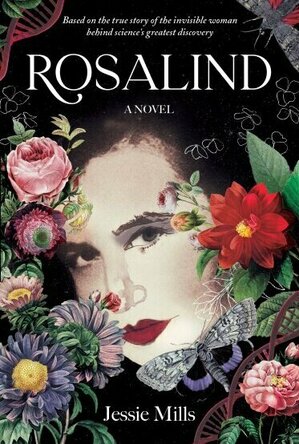
Rosalind: DNA's Invisible Woman
Book
Rosalind: DNA’s Invisible Woman tells the true story of the woman who discovered the structure of...
Historical Fiction Narrative Non Fiction
BookwormMama14 (18 KP) rated Cinder in Books
Jan 2, 2019
Set in the very distant future, 126 years after the end of World War IV. The moon is inhabited, there are only 6 countries on earth, and a vicious plague is laying waste to the planet. Set in the Eastern Commonwealth (Asia/China), we get to experience the story through Cinder as well as Prince Kai. Cinder is as loveable and caring as she is in any other telling of Cinderella. The prince's responsibilities to find a cure for the plague and to maintain peace with the Lunars weigh heavily on him. Nut he posses a strength that I admire.
Both Kai and Cinder are faced with challenges that are beyond anything that I could even imagine. Will they make the best choice for the people? What will come of it all? Well, I can't even tell you, because this is only the first book in a series that I can not wait to continue. I already placed the next book on hold at the library.
Filled with descriptive details of the architect, the technology, the customs of the era, I was completely submerged into this brilliant world that Marissa Meyer has created. Although not a Christian book, it is clean and appropriate. I can recommend this book to young adults without any hesitation.
If you think you would enjoy a dystopian sci-fi with a fairy tale mixed into it all, you should definitely give Cinder a try. I think you will truly enjoy it.
I found Cinder at my local library. I was not required to write a review. All opinions expressed are mine alone.
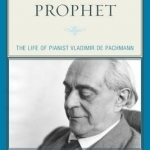
Chopin's Prophet: The Life of Pianist Vladimir de Pachmann
Gregor Benko and Edward Blickstein
Book
Vladimir de Pachmann was perhaps history's most notorious pianist. Widely regarded as the greatest...
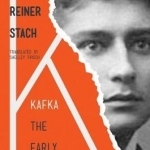
Kafka: The Early Years
Book
How did Kafka become Kafka? This eagerly anticipated third and final volume of Reiner Stach's...
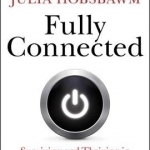
Fully Connected: Surviving and Thriving in an Age of Overload
Book
Twenty-five years after the arrival of the Internet, we are drowning in data and deadlines. Humans...
Hitler: Volume I: Ascent 1889-1939
Volker Ullrich and Jefferson S. Chase
Book
Selected as a Book of the Year by the New York Times, Times Literary Supplement and The Times...
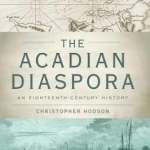
The Acadian Diaspora: An Eighteenth-Century History
Book
Late in 1755, an army of British regulars and Massachusetts volunteers completed one of the...
